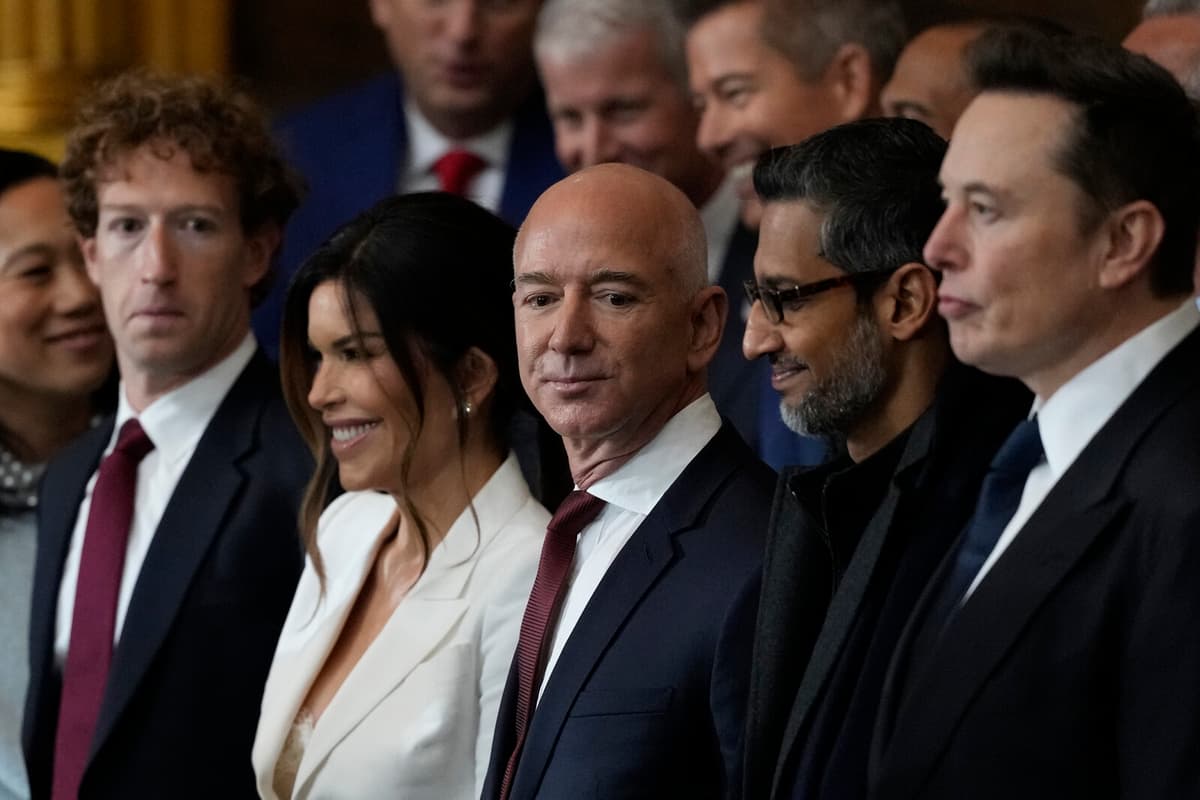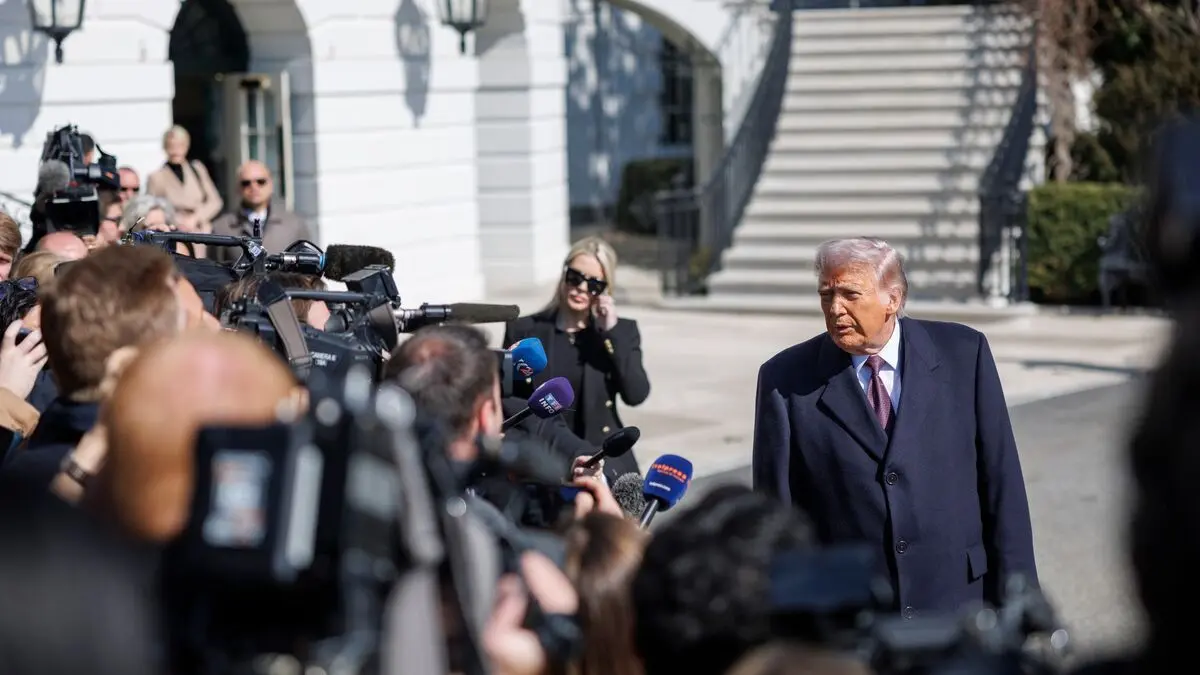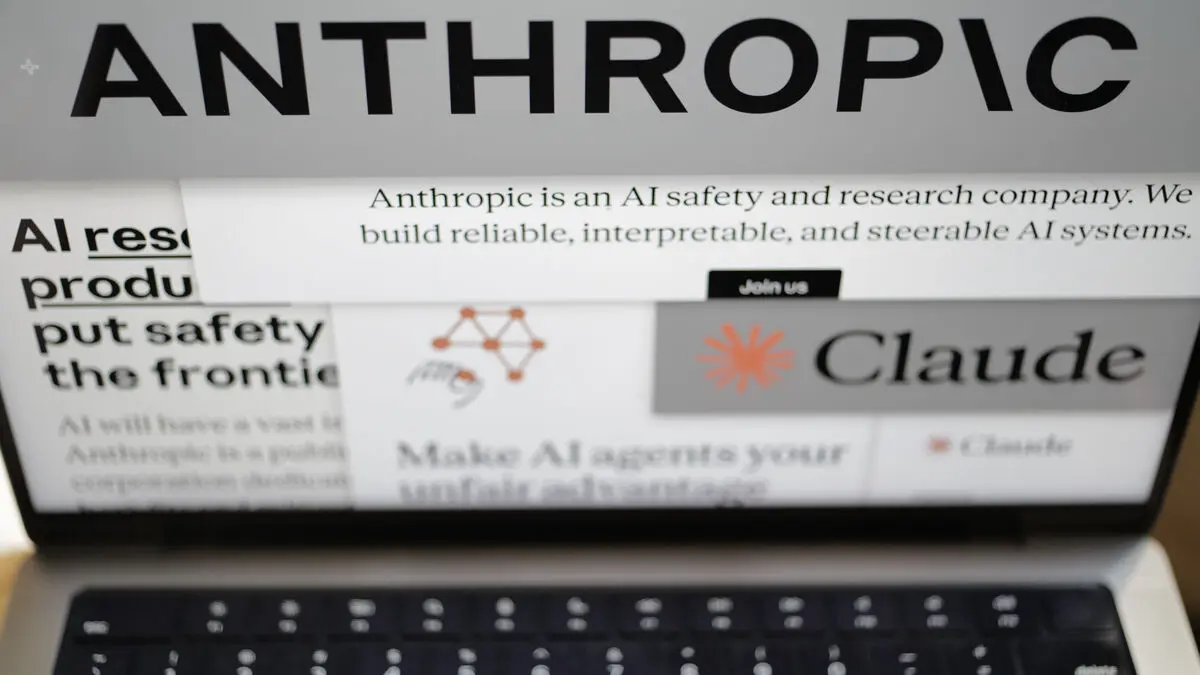The full-scale trade war between the US and China – and all the new Trump tariffs on Western countries and sectors such as steel and cars – creates great uncertainty about the future. This applies not least to the Magnificent 7 companies.
They are very dependent on a functioning world trade. These are large export companies, says Frida Bratt, savings economist at the online broker Nordnet.
The seven companies include Tesla, Google owner Alphabet, Meta Platforms, Microsoft, Apple, Amazon, and semiconductor giant Nvidia.
Have backed up Trump
Five of the seven companies – which together account for almost a third of the entire Wall Street value – generate a majority of their revenue outside the US.
When it comes to iPhone manufacturer Apple and Facebook owner Meta Platforms, the proportion is even higher, with nearly two-thirds of revenue coming from countries other than the US, according to a compilation by The Wall Street Journal based on figures from Factset.
Trump talks a lot about the US trade deficit in goods. These companies export services to a high degree and are very exposed to the world trade functioning without the kind of barriers that have now been set up, says Bratt.
All seven have so far backed up Donald Trump. Among other things, by removing diversity and sustainability goals from websites, reporting, and recruitment strategies. They also contributed with massive donations to Trump's inauguration.
Electric car manufacturer Tesla has even stronger ties to Trump. Founder and CEO Elon Musk – the world's richest man by a wide margin – has been moonlighting as head of Doge, a new unit in the White House, which is implementing massive public spending cuts since January.
Swedish small investors have dumped the shares
Tesla is, despite this, the Magnificent 7 company that has fallen the most in the Trump downturn.
Besides extreme tariffs – such as 145 percent for goods delivered from China to the US – several of the tech companies are also affected by trade restrictions as the world's economic superpowers try to strangle strategically important flows of technology and input goods to the opponent. In Europe, the EU Commission has also flagged that it may become relevant to introduce a new taxation.
Swedish small investors have dumped a lot of Magnificent 7 shares in the turmoil and also sold holdings in technology funds where these shares dominate, according to Bratt.
Especially Tesla, she says.
The only exception is Nvidia. Nvidia has been net-bought. It's a very clear trend among us, she adds.
Several of the Magnificent 7 companies reached new record levels after Donald Trump's victory in the presidential election in November 2024. But this rally turned downward already before Trump's inauguration on January 20.
After a week and a half with Trump in the White House, it became clear to the market that there would be sharp turns – both in geopolitics and tariffs – and in early February, the price drops took off in earnest.
The crash on April 3-4 was the worst, with $6.6 trillion wiped out in market value. Despite some rebounds, about a fifth of the Magnificent 7 companies' value has been wiped out since February 4 – in dollar terms, from $17.594 trillion to $14.013 trillion.
If you count the dollar's decline against the krona during the same period – which a Swedish saver should do – the decline becomes even worse.
Here are the dates to keep track of when the Magnificent 7 companies report:
April 22: Electric car manufacturer Tesla
April 24: Google owner Alphabet
April 30: Facebook owner Meta Platforms and software giant Microsoft
May 1: iPhone manufacturer Apple
E-commerce giant Amazon is expected to report its first quarter around the turn of the month April-May, but has not announced an exact date.
Number seven in the Magnificent 7 – semiconductor giant Nvidia reports on May 28.






